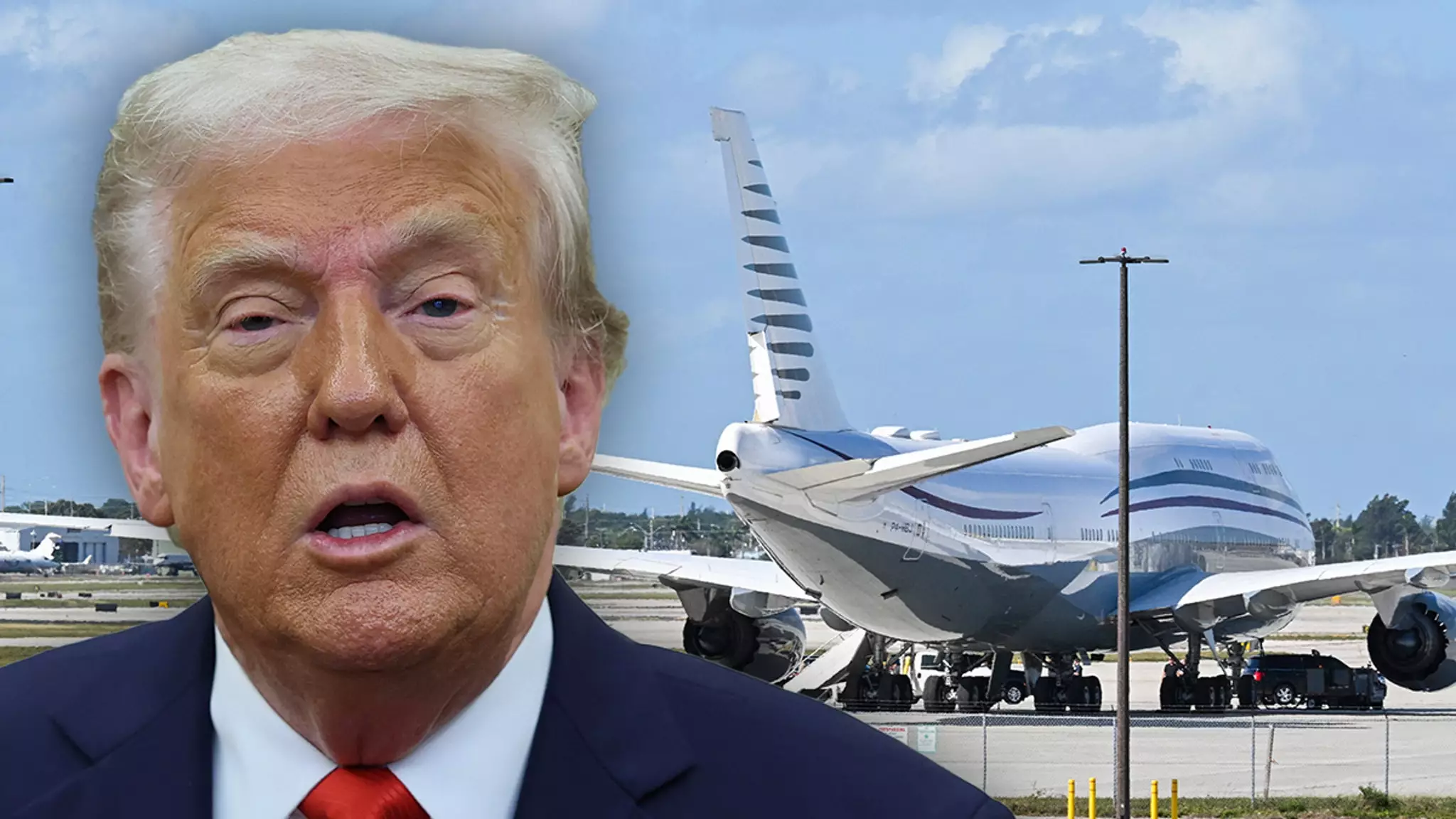The political arena surrounding former President Donald Trump continues to be a whirlwind of controversy and debate, especially with his latest announcement regarding a luxurious Boeing 747-8, touted as the largest plane in the world. This extravagant aircraft, reportedly gifted to Trump from Qatar’s royal family, is intended to serve as a temporary replacement for the aging Air Force One fleet. However, this seemingly grand gesture now carries a heavy weight of legal and ethical scrutiny. The promise of a “flying palace” accompanied by a price tag of $400 million raises urgent questions: is this a benevolent offer or a troubling potential breach of constitutional law?
The Complexity of Foreign Gifts
Accepting gifts from foreign governments is legally dicey for U.S. officials, primarily due to existing statutes that prohibit such actions to prevent undue influence or corruption. Trump’s administration appears to be positioning this acquisition as a transaction routed through the U.S. Defense Department, arguing that since the aircraft isn’t technically a personal gift, it circumvents regulatory scrutiny. However, skepticism abounds. The legality of this situation may hinge on interpretations of what constitutes “personal” versus “governmental” gifts, leaving Trump’s advisors defending the decision while critics raise alarms of potential impropriety.
The former president’s braggadocious claims about the jet on social media paint a picture of triumph, where he frames the Democrats as “World Class Losers” who oppose what he views as a transparent transaction. Nonetheless, this narrative fails to adequately address the broader implications of receiving a multi-million dollar aircraft from a foreign entity, particularly given Trump’s already tumultuous history with foreign relations and gifts.
The Ties that Bind: Trump and Qatar
The timing of this aircraft’s announcement also raises eyebrows, particularly in the context of Trump’s son, Eric Trump, engaging in a lucrative golf club deal in Qatar for a staggering $5.5 billion. This overlapping of personal and professional interests blurs the lines of ethics in politics. Can one truly disentangle such lucrative connections from national service? It begs the question of whether this “gift” is a mere token of goodwill or part of a more intricate web of influence and access.
Moreover, the operational capabilities of this aircraft, providing enhanced security and real-time communication for the president, cannot be understated. The need for state-of-the-art technology and robust security is undeniable in today’s geopolitical climate. However, this functionality is tainted by the murky waters of how it’s acquired, raising questions about the respect for the integrity of the presidential office.
The Future of Air Force One
Currently, there are two active Air Force One planes, with one undergoing maintenance. As Trump prepares for an upcoming visit to Qatar, the shadow of this aircraft looms larger over his presidency, symbolizing both his extravagant lifestyle and the contentious dynamics of foreign influence. Whether this plane ultimately serves its purpose or becomes a scandalous footnote in Trump’s story remains to be seen. What is clear is that the intersection of opulence, governance, and ethical standards is more critical than ever, compelling both supporters and detractors to scrutinize the implications of such an audacious gift.

